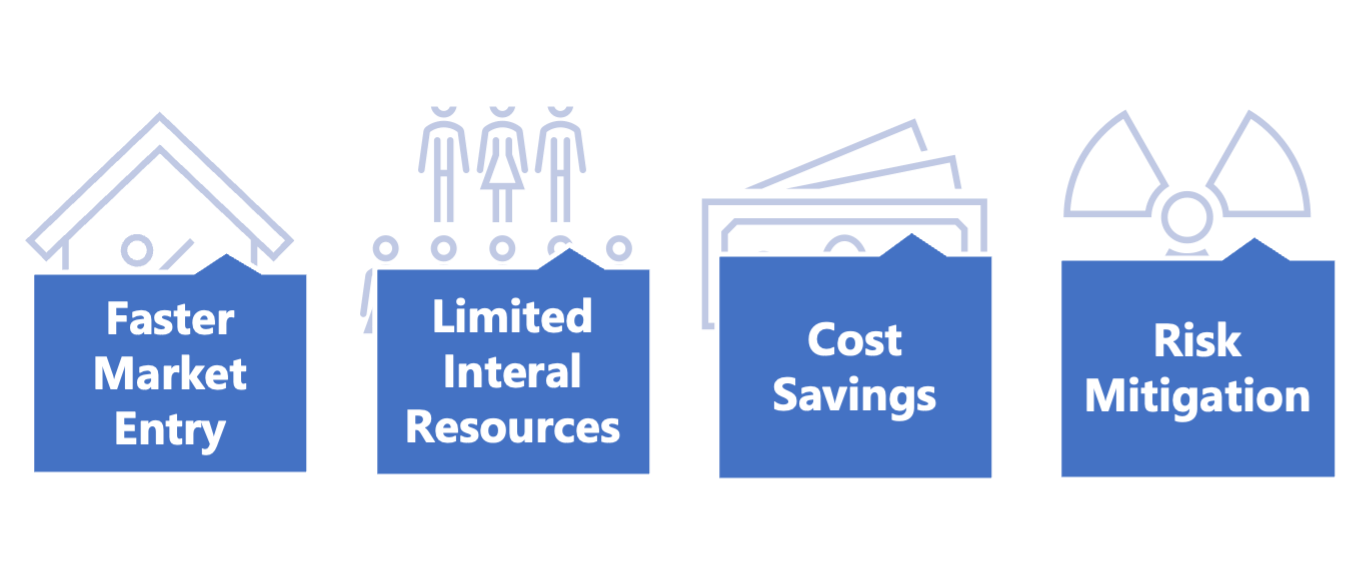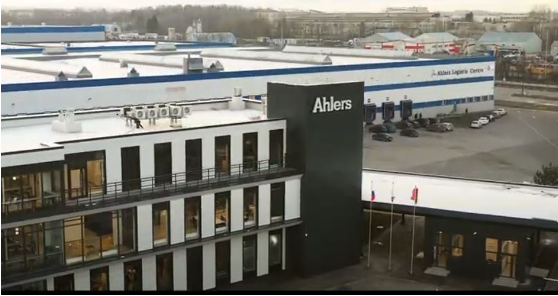"Unleashing the Potential of Trade Facilitation: Key Benefits and Strategies for Businesses"
Companies can expand their business online in by opening a local entity, hiring local staff, and starting operations. But, there is an alternative that takes less effort, time, and money: making use of trade facilitation. Trade Facilitation gives you the benefits and opportunities of having your own legal entity without having one. In this case, you work with a partner to orchestrate your route-to-market and outsource anything from transportation, import, customs clearance, and local distribution supported by a shared services set-up, to cover business functions such as Legal, IT, and Finance.
When to use it?
The model is most valuable for companies who want to transparently control their complete route to market, know their end clients, and looking to accelerate their sales in challenging markets such as Asia or CIS countries without the burden of managing their own legal entity at all.
There are several situations when it is beneficial to work with a trade facilitation partner that looks after your entire supply chain, logistics operations, and business process outsourcing when you don’t have a legal entity or distributor for the following reasons:

Challenges when Importing into Complex Markets
While new entry markets can prove enormous potential, Western companies also need to be aware of numerous challenges when expanding their business and selling their goods via different distribution models. The procedure to import goods is often complicated. There are several challenges that Western companies face when they want to sell their products.
- Legal Entity: the first thing you need to import your goods or sell them is a local entity. Setting up a local entity is a cumbersome process and takes money. You need to know all the local laws, rules and regulations, all these factors are often subject to regular changes.
- Importer of Record: to import your goods, you need an importer of record. This importer of record always needs to be a legal entity that takes full responsibility for the import. Establishing a local legal entity in any of these markets can be challenging. You need to know the local language and culture and be fully aware of all rules and regulations, the tax system, and the documents you need to name the most important things.
- Getting Goods Through Customs: to get your products through customs, you need to make sure your goods meet all the requirements in terms of quality. Samples need to be tested, approved and certified and comply with digital marketing specifications in the case of Russia. Safety and quality standards have to be met. Having a partner with the knowledge and experience to determine what products need to be tested and certified and what is required to get your goods through customs is critical to success.
- Correct Labeling: depending on what goods you want to import, there are requirements regarding the information that needs to be on the label. These requirements vary per product.
- Local Staff: you can’t run any operation without people. Next to the fact that you need a local General Manager for your company, you may also need additional staff. Good people are difficult to find, especially when you are a new entrant.
- Administration: you will need local financial administration and invoice your customers in local currency. Again companies need to be fully aware of all local laws, rules, and regulations.
A trade facilitation model provides you with 3 options:
- Simplification and control of your route to market. Focus on investments and strategy instead of operations. By simplifying and centralizing the supply chain function, the complexity of business decreases. By doing this the risk profile is put to one company instead of several distributors. It also gives the possibility to work with smaller, more specialized distributors since you can create a stock of local goods.
- Limitation of financial risk and CAPEX possibility. Sometimes smaller distributors might have an increased financial risk profile or, logically because of their size, might just not have the needed capital to invest in CAPEX. By changing the route to market, you free the distributors of the need to finance the supply chain and as such, they can invest their capital in accelerating sales instead of financing an increasing inventory. This might lead to fewer discussions on payment conditions and better availability of your goods in the market, which catalyzes sales.
- A scalable logistics and trading platform for market expansion. By centralizing and streamlining all supply chain activities, you create a platform to generate economies of scale, while at the same time, you put the supply chain risk to one company instead of multiple ones. Combined with supply chain knowledge and regional expertise, this can help you tackle issues such as increasing lead times in your supply chain, inefficient stock management, and low forecast-& production accuracy levels.
The Benefits of Trade Facilitation
With trade facilitation, you can focus on marketing, sales, business development and managing your local staff. Your trade facilitation partner takes care of the rest. Trade facilitation has two main components:
 |
 |
|
Supply Chain Function This covers the main trade logistics steps, like International Logistics, Customs Formalities & Certification, Labelling, and Bonded Warehousing & Distribution. |
Shared Services Function Covers the steps specific to trade facilitation, like Order-2-Cash, Legal Support & Contract Fulfilment, ERP & EDI Management, Trade Finance & Accounting, and Human Resource Management. |
Strategic Decision
By taking control of your route to market and re-focusing your model from sell-in to sell-out, you need more than just logistics, import, and distribution. You need a strategic decision to change the way you do business when entering new and complex markets.
How does it work?
In this case, Ahlers acts as your trading partner, who takes the responsibility to manage the import and total supply chain efficiently and transparently. On top of that, we use our trading platform to perform both commercial- and warranty transactions strictly on your behalf. At the same time, you are responsible to define and execute your commercial strategy, meaning you are always in complete control of the entire transaction. Ahlers offers a true, proven, one-stop-shopping solution. The value we offer is to facilitate your business operations so that you can focus on what you do best: selling your product.

Ask yourself these three questions:
- How will you manage your distributors, pricing, and promotional actions?
- What criteria will you use to evaluate the performance of existing and new distributors?
- What resources do you need for this?
This is an internal exercise where we can share our best practices. At the same time, from experience we understand, that most likely you will also need G&A and HR support to manage your local team. Very pragmatically this means that you can use our trading platform and shared services to arrange your local office needs and HR support for local resources you need to hire.


